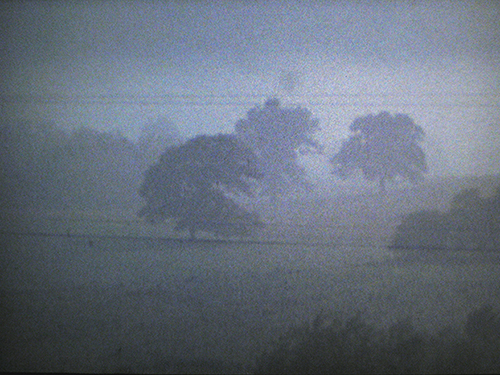
Bozar and Cinema Parenthèse present two programmes with Larry Gottheim, in his presence.
Larry Gottheim (°1936) became, together with Michael Snow and Ernie Gehr, one of the US most prominent and leading structural avant-garde filmmakers in the 1960s. From his late-1960s series of sublime single-shot films to the dense sound/image constructs of the mid-1970s and after, his cinema is the cinema of presence, of observation, and of deep conscious engagement.
While addressing genres of landscape, diary and assemblage filmmaking, Gottheim's work properly stands alone in its intensive investigations of the paradoxes between direct, sensual experience in collision with complex structures of repetition, anticipation and memory. Gottheim taught 16mm practice for more than three decades in the prestigious Binghamton University Film Department (US), which he founded and where he taught with among others Ken Jacobs, Hollis Frampton, Peter Kubelka and Ernie Gehr.
(Cinema Parenthèse)
19:00 PROGRAMME
Blues (Larry Gottheim, 1969, 16mm, color, silent, 8’30)
Fog Line (Larry Gottheim, 1970, 16mm, color, silent, 11’00)
Thought (Larry Gottheim, 1971, 16mm, color, silent, 7’00)
Doorway (Larry Gottheim, 1971, 16mm, b&w, silent, 7’30)
Harmonica (Larry Gottheim, 1971, 16mm, color, sound, 10’30)
Barn Rushes (Larry Gottheim, 1971, 16mm, color, silent, 34’00)
21:00 PROGRAMME
Horizons (Larry Gottheim, 1973, 16mm, color, silent, 77’00)
Scott Macdonald: All the early films seem to combine examinations of simple natural things and very subtle explorations of properties of film. Much of their interest, in fact, is a function of that combination. But on another level several of the films – I’m thinking particularly of Blues, Corn, and Doorway – seem metaphoric. In Doorway, for example you could say that a combination of a bleak winterscape and of the pan, which makes that landscape slide from darkness to darkness, seems to take on a fairly obvious metaphoric dimension. Is that a by-product of other concerns, or is it something you were conscious of when you were making the films?
Gottheim: I wasn’t very concerned, or even conscious, of more literal kinds of metaphors. One thing that I’ve been involved with for a long time, though, is the way that things in art seem to take on a reverberance. I don’t know what the proportion is, but if I were keeping a tape recording of my consciousness, it might be that one out of every million filmic ideas comes to be embodied in a film. Now, why does this one detail or this one procedure or this one constellation of ideas and procedures get to be carried out? As I work, I have a feeling of it being promising; it seems to be holding out the possibility of having these reverberations, even if I don’t know exactly what they are? There just seems to be this pressure that leads me on.
Larry Gottheim in an interview with Scott Macdonald1


- 1Scott Macdonald, A Critical Cinema: Interviews with Independent Filmmakers, Volume 1 (Los Angeles: University of California Press, 1988), 83.

